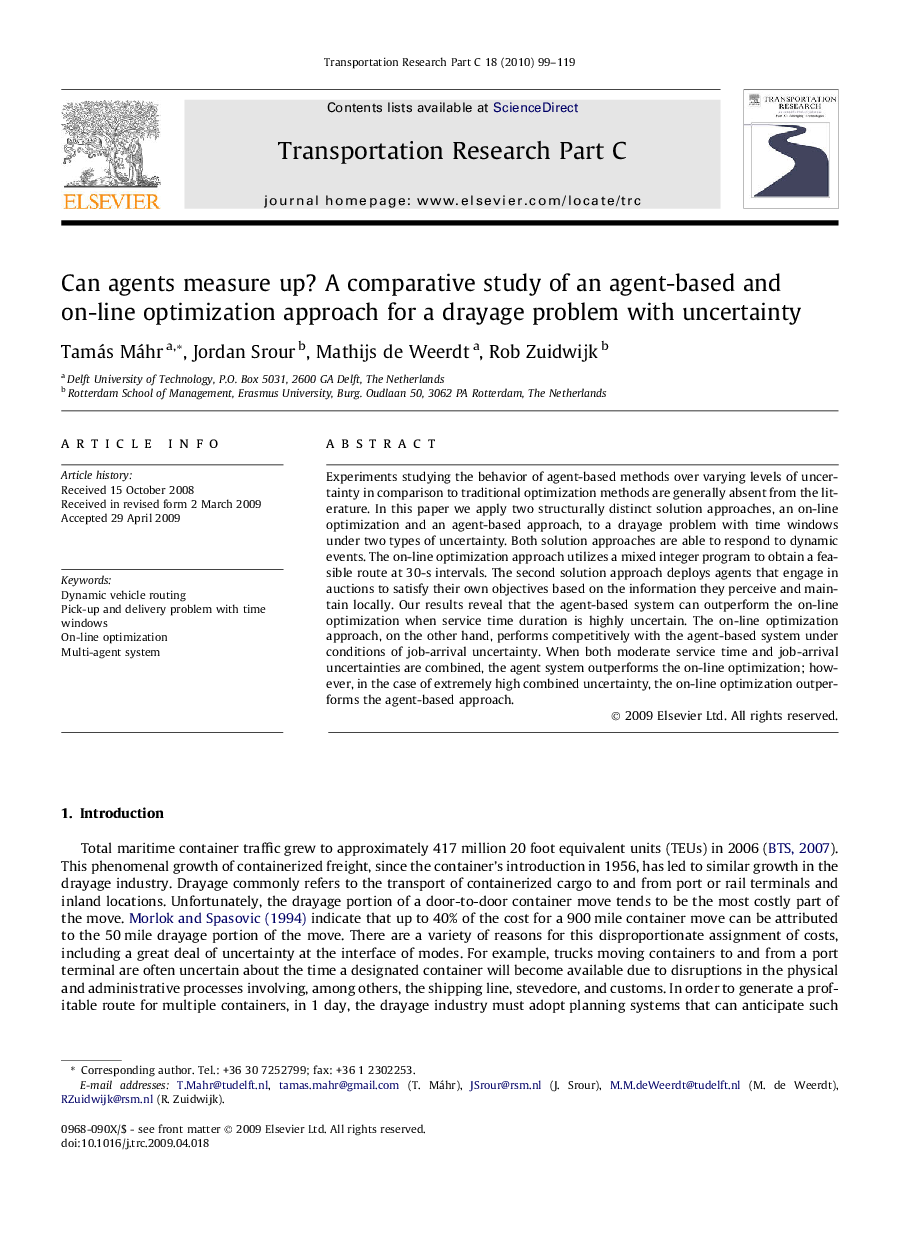| Article ID | Journal | Published Year | Pages | File Type |
|---|---|---|---|---|
| 525497 | Transportation Research Part C: Emerging Technologies | 2010 | 21 Pages |
Experiments studying the behavior of agent-based methods over varying levels of uncertainty in comparison to traditional optimization methods are generally absent from the literature. In this paper we apply two structurally distinct solution approaches, an on-line optimization and an agent-based approach, to a drayage problem with time windows under two types of uncertainty. Both solution approaches are able to respond to dynamic events. The on-line optimization approach utilizes a mixed integer program to obtain a feasible route at 30-s intervals. The second solution approach deploys agents that engage in auctions to satisfy their own objectives based on the information they perceive and maintain locally. Our results reveal that the agent-based system can outperform the on-line optimization when service time duration is highly uncertain. The on-line optimization approach, on the other hand, performs competitively with the agent-based system under conditions of job-arrival uncertainty. When both moderate service time and job-arrival uncertainties are combined, the agent system outperforms the on-line optimization; however, in the case of extremely high combined uncertainty, the on-line optimization outperforms the agent-based approach.
